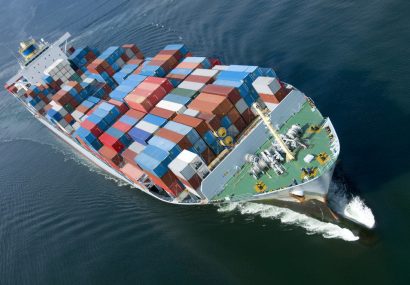Iran-Oman Shipping Line to Be Activated
TEHRAN (Iran News) Razaghi emphasized that the trade volume between Iran and Oman should reach at least $20 billion annually. Without achieving this figure, the close political relations would not yield tangible benefits. Therefore, during the recent meeting between Iranian and Omani ministers, the establishment of a joint committee was proposed to address obstacles hindering the realization of the trade goals.
One of the major barriers to trade was tariff issues, which were resolved during the recent visit. It was agreed that preferential trade agreements would be implemented, effectively reducing tariffs to zero.
Razaghi further announced efforts to facilitate the transportation of goods between the two countries, highlighting the challenge of establishing a direct and regular shipping line between Iran and Oman. Oman has agreed to cooperate by covering 50% of the required subsidy for six months to a year, while the Iranian Trade Promotion Organization will cover the remaining 50%.
He added that if Iran and Oman establish a shipping line with daily trips, the current trade volume is insufficient to fill the shipping capacity. This subsidy will be used to compensate for underutilized capacity until trade volume increases.
Razaghi Jahromi pointed out that Iranian manufacturers have been advised over the past two years to shift the final 30% of their production processes to Oman. This strategy would allow them to export finished products to other countries via Oman, leveraging Oman’s zero-tariff agreements with 16 countries, including the U.S.
He also noted that one of the main obstacles for Iranian investors in Oman was the inability to open bank accounts. While some of these issues have been resolved, others are still under review. Currently, economic actors investing in Oman can open accounts for both themselves and their companies. The implementation of preferential trade agreements, along with these improvements, is expected to boost Iranian exports via Oman.
The Iran-Oman Chamber of Commerce president highlighted that last year, Oman, with a population of 5 million, attracted over 40 billion Omani rials (approximately $140 billion) in foreign investment.
Finally, he stressed that while Iran and Oman have the potential to collaborate across various industries, overcoming sanctions and resolving issues related to Iran’s non-membership in the Financial Action Task Force (FATF) are crucial for realizing this potential.
- source : IRAN NEWS ECONOMIC DESK






























